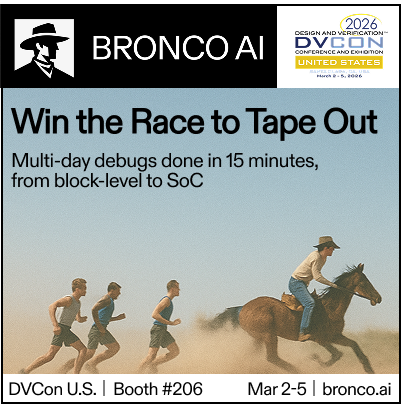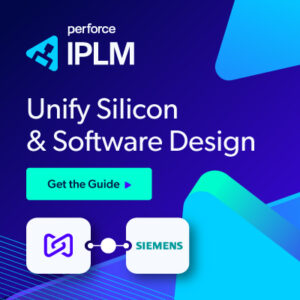In a field as white-hot as AI it can be difficult to separate cheerleading from reality. I am as enthusiastic as others about the potential but not the “AI everywhere in everything” message that some emphasize. So it was interesting to find a survey which looks at the deployment reality outside our narrow domain of electronic and … Read More
Author: Bernard Murphy
AI Deployment Trends Outside Electronic Design
Propelling DFT to New Levels of Coverage
Siemens recently released a white paper on a methodology to enhance test coverage for designs with tight DPPM requirements. I confess when I first skimmed the paper, I thought this was another spin on fault simulation for ASIL A-D qualification, but I was corrected and now agree that while there are some conceptual similarities… Read More
An Assistant to Ease Your Transition to PSS
At times it has seemed like any development in EDA had to build a GenAI app that would catch the attention of Wall Street. Now I see more attention to GenAI being used for less glamorous but eminently more practical advances. This recent white paper from Siemens on how to help verification engineers get up to speed faster with PSS is … Read More
We Need to Turn Specs into Oracles for Agentic Verification
The natural language understanding now possible in LLMs has raised interest in using specs as a direct reference for test generation, to eliminate need for intermediate and fallible human translation. Sadly, specs today are not an infallible source of truth for multiple reasons. I am grateful to Shelly Henry (CEO of MooresLab)… Read More
Website Developers May Have Most to Fear From AI
Further on the theme of what jobs will AI displace or radically change, I have been thinking about Walmart’s recent announcement with OpenAI, to enable customers to buy products directly within ChatGPT. Seems far removed from any care-abouts in electronic design but bear with me. We’ve been hearing about sizeable layoffs at Amazon,… Read More
Agentic Bug Localization. Innovation in Verification
Bug localization continues to be a challenge for both bug triage and root-cause analysis. Agentic approaches suggest a way forward. Paul Cunningham (GM, Verification at Cadence), Raúl Camposano (Silicon Catalyst, entrepreneur, former Synopsys CTO and lecturer at Stanford, EE292A) and I continue our series on research ideas.… Read More
An Insight into Building Quantum Computers
Given my physics background I’m ashamed to admit I know very little about quantum computers (QC) though I’m now working to correct that defect. Like many of you I wanted to start with the basics: what are the components and systems in the physical implementation of a quantum “CPU” and how do they map to classical CPUs? I’m finding the… Read More
Arm FCSA and the Journey to Standardizing Open Chiplet-Based Design
I have written before about an inter-chiplet communication challenge to realizing the dream of multi-die designs built around open-market chiplets. Still a worthy dream but it’s going to take a journey to get there. Arm recently donated their Foundation Chiplet System Architecture (FCSA) to the Open Compute Project (OCP) as… Read More
Adding Expertise to GenAI: An Insightful Study on Fine-Tuning
I wrote earlier about how deep expertise, say for high-quality RTL design or verification, must be extracted from in-house know-how and datasets. In general, such methods start with one of many possible pre-trained models (GPT, Llama, Gemini, etc.). To this consultants or in-house teams add fine-tuning training, initially… Read More
Think Quantum Computing is Hype? Mastercard Begs to Disagree
Just got an opportunity to write a blog on PQShield, and I’m delighted for several reasons. Happy to work with a company based in Oxford and happy to work on a quantum computing-related topic, which you’ll find I will be getting into more deeply over coming months. (Need a little relief from a constant stream of AI topics.) Also important,… Read More




















Advancing Automotive Memory: Development of an 8nm 128Mb Embedded STT-MRAM with Sub-ppm Reliability